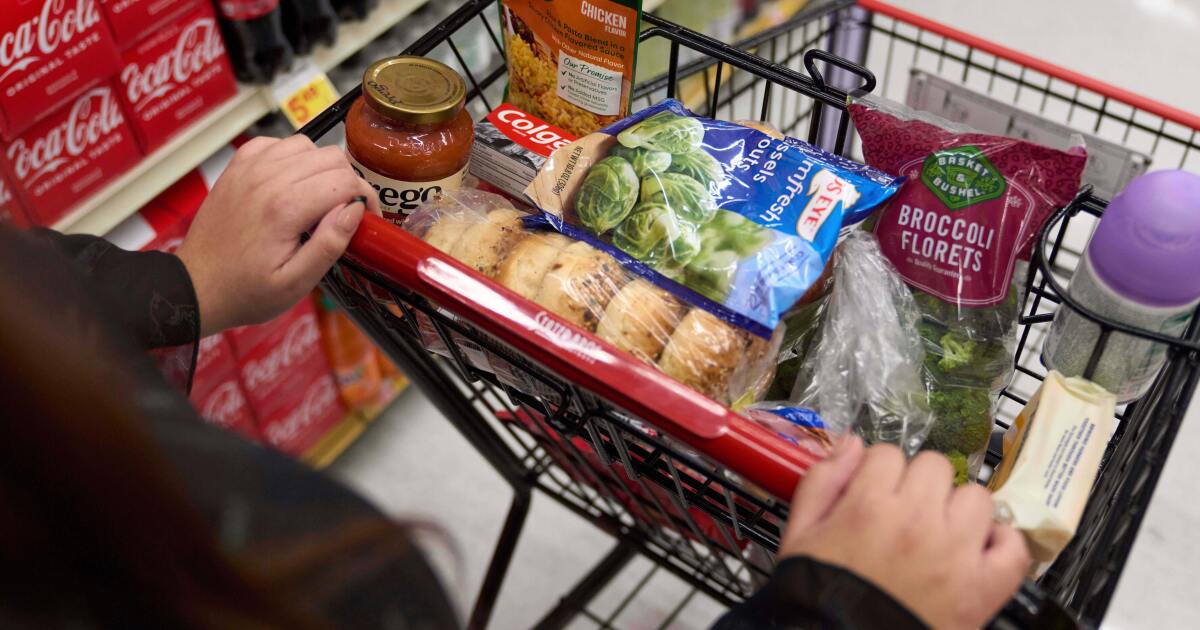Arizona's SNAP Benefits at Risk Due to Imminent Government Shutdown
- Better American Media

- 4 days ago
- 2 min read

Impending Government Shutdown Poses Risks to Arizona's SNAP Benefits
With a potential government shutdown on the horizon, nearly 900,000 Arizonans relying on food assistance could face disruptions in their support. Arizona Governor Katie Hobbs has publicly stated that the state lacks the resources to compensate for any cuts in federal food stamp benefits.
During a recent event at Arizona State University’s Polytechnic Campus, Governor Hobbs commented, “Arizona doesn’t have the capacity to backfill that,” highlighting the limitations faced by the state. She urged local nonprofit organizations to collaborate and address the rising needs of those affected during this uncertain period.
The Supplemental Nutrition Assistance Program (SNAP) is essential for over 450,000 households in Arizona, providing an average of about $358 per month. Recent data indicates that the program has disbursed more than $161.1 million to recipients throughout the state.
While Governor Hobbs has recently allocated funds to support eviction prevention and domestic assistance, including $13.5 million for homelessness initiatives and $5 million in COVID relief for housing assistance, she noted, “The COVID money is very much exhausted,” implying limited financial avenues available for SNAP support.
Other states are taking proactive measures in response to potential SNAP disruptions. Virginia's Governor Glenn Youngkin has declared a state of emergency, accessing emergency funds, while Colorado’s Governor Jared Polis is seeking $10 million to bolster food stamp assistance. Louisiana’s Governor Jeff Landry has also declared a state of emergency, though specific actions have not yet been detailed.
Governor Hobbs has questioned the sources of assistance available to these other states, asserting, “We don’t have those resources.” However, she pointed out that the U.S. Department of Agriculture has a $5 billion contingency reserve that could temporarily help mitigate the impact of the federal shutdown, prompting Democratic lawmakers to call for the release of these funds.
Arizona Attorney General Kris Mayes further supported this call in a letter to Agriculture Secretary Brooke Rollins, mentioning that Congress had designated at least $6 billion in contingency funds for sustaining SNAP benefits during government interruptions.
The political climate in Washington remains tense as lawmakers attempt to forge a “continuing resolution” and keep federal funding operational. Competing narratives highlight both sides of the aisle, with some blaming Senate Democrats for stalling unless certain healthcare subsidies are reinstated, while Republican Governors have criticized them for perceived political maneuvering.
Governor Hobbs expressed dismay at the political landscape, pointing out, “This chaos in Washington, regardless of who’s to blame, is harming Arizonans.” She noted the broader repercussions of the shutdown could extend to airport operations and Small Business Administration loan processes.
In anticipation of rising demand, local food banks like St. Mary’s Food Bank are preparing to support those in need. According to spokesperson Jerry Brown, there has been a noticeable increase in demand, with visits rising by 10% annually over the last four years. While food box contents might be reduced, Brown assured that no individual would leave the food bank empty-handed.
Residents are advised to utilize any remaining October benefits to stock up on shelf-stable food items as a precaution against possible shortages in November, as suggested by the Arkansas Department of Human Services.

